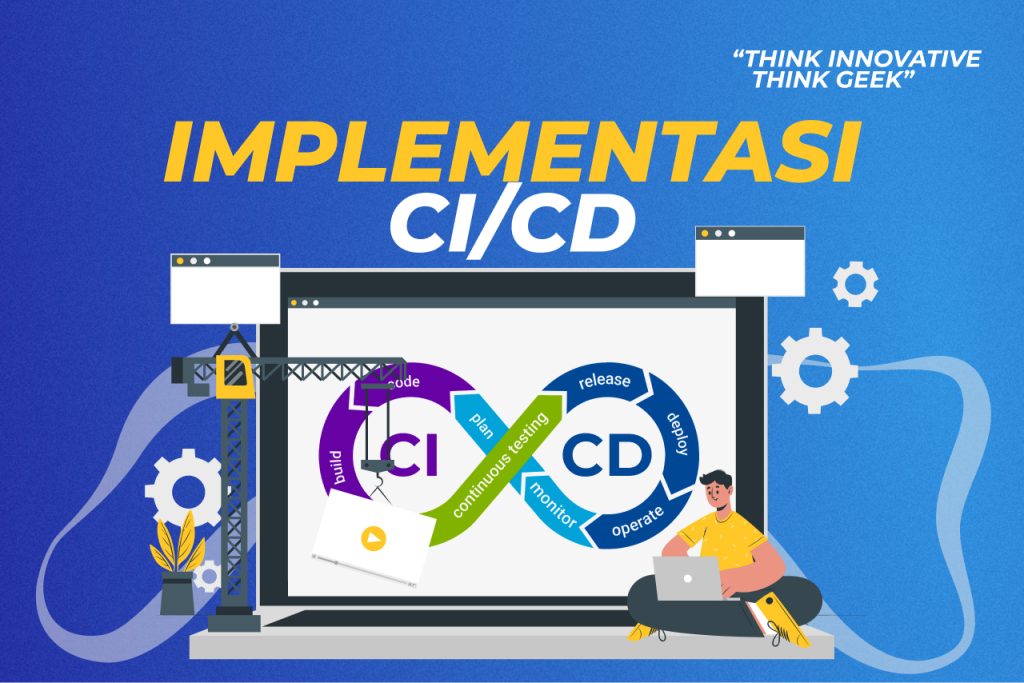In today’s fast-paced software development world, speed and quality of application releases are key factors in gaining a competitive edge. CI/CD implementation is one of the best solutions to automate deployment processes and ensure each code iteration is thoroughly tested before it reaches production.
This article provides a comprehensive guide on CI/CD—covering its definition, key components, and best practices you can apply to increase efficiency and minimize the risk of errors.
What is CI/CD?
CI/CD plays a vital role in helping companies and development teams accelerate their software delivery processes. CI/CD stands for Continuous Integration and Continuous Delivery/Deployment.
It is a series of automated processes that integrate code changes continuously (CI) and consistently deliver applications to production or staging environments (CD). The main goal is to ensure that every code change is automatically tested and deployed, enabling rapid and reliable software releases.
What Are the Benefits of CI/CD in Software Development?
Implementing CI/CD offers numerous advantages, such as:
- Error Risk Reduction: Automated testing helps detect bugs early in the development cycle, minimizing the risk of failures in production.
- Improved Efficiency: Replaces time-consuming manual processes with automation, allowing teams to focus on building new features.
- Faster Release Cycles: Every code change is automatically tested and deployed, enabling businesses to respond quickly to market changes.
- Scalable Processes: CI/CD enables seamless deployment management even at scale, without compromising application quality.
What CI/CD Tools Can You Use?
Here are some popular tools commonly used for CI/CD implementation:
1. Jenkins
An open-source tool widely used for building and testing. With its extensive plugin ecosystem, Jenkins integrates seamlessly with almost any CI/CD pipeline component.
2. GitLab CI/CD
Fully integrated into GitLab, this tool offers easy-to-configure pipelines for automated build, test, and deployment.
3. CircleCI
Known for its flexibility and scalability, CircleCI is ideal for evolving projects that require reliable automation.
4. Travis CI
Great for open-source projects, Travis CI supports fast setup and broad compatibility with various programming languages.
5. Bamboo
Developed by Atlassian, Bamboo works smoothly with project management tools like Jira, offering an all-in-one solution for build, test, and deployment.
A visual workflow of these tools would show how each phase—from build to monitoring—flows automatically through a well-coordinated pipeline
How to Get Started with CI/CD in Your Project?

Implementing CI/CD is not instantaneous; it requires careful planning and step-by-step execution:
1. Planning and Preparation
Begin with a needs assessment. Define your goals, select appropriate tools, outline your pipeline based on existing infrastructure, and align your team’s understanding of the CI/CD processes.
2. Automation Setup
Create automation scripts tailored to your application’s specific requirements to ensure every code change is automatically processed.
3. Integrate Automated Testing
Ensure that every repository commit triggers automated tests to verify code quality. Early bug detection helps prevent flawed code from reaching production.
4. Monitoring and Feedback Loop
Continuous monitoring post-deployment is essential. Tools like Prometheus, Grafana, and the ELK Stack provide real-time performance data and feedback to developers.
Best Practices for CI/CD Implementation
To get the most out of your CI/CD pipeline, consider the following best practices:
1. Use Modern Tools
Tools like Jenkins, GitLab CI, and CircleCI provide comprehensive solutions for build, test, deploy, and monitor stages. Choose tools that align with your team’s infrastructure and project needs.
2. Prioritize Automated Testing
Automated testing ensures that every code change is validated before reaching production, significantly reducing the chance of bugs.
3. Integrate Monitoring
Monitoring should be embedded into the CI/CD pipeline, not just post-deployment. Real-time feedback helps detect and resolve issues quickly, maintaining application reliability.
According to GeekGarden’s DevOps team, CI/CD significantly shortens deployment time and reduces errors through strict automation workflows. With the right tools, testing and integration processes become much faster and simpler.
Ready to Optimize Your Application Deployment Process?
CI/CD implementation is a strategic move for development teams and companies seeking to improve efficiency and accelerate application deployment.
By automating build, test, and deployment stages, CI/CD helps reduce errors and enables your team to respond to market needs faster.
To get started, make a solid plan, choose the right tools, and implement integrated monitoring. These steps will significantly enhance your development process and positively impact your business growth.

So, are you ready to supercharge your deployment process with CI/CD? Contact GeekGarden for a free consultation and discover the best DevOps solutions to scale your business!
Author: Sari Dewi (Content Writer)















